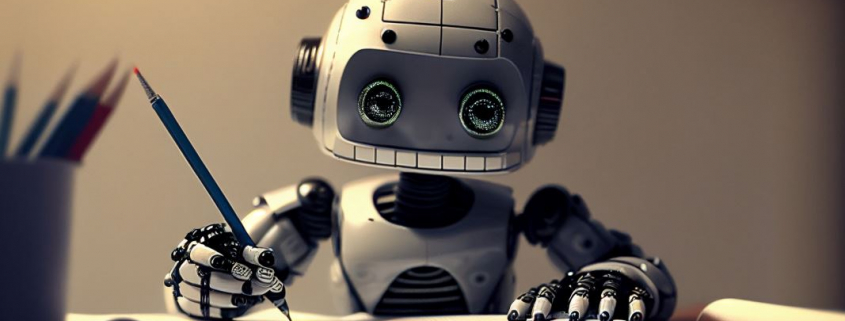The Impact of A.I. on Physician Recruitment: Partner or Replacement?
In today’s fast-evolving job market, the role of recruiters faces numerous challenges and opportunities, many of them driven by the advent of Artificial Intelligence (AI).
As the use of AI gains momentum, the question that looms large is whether these intelligent systems will eventually replace human recruiters.
At this time, increasing numbers of job candidates are using AI for tasks such as writing CVs and cover letters. ChatGPT, for example, not only can construct correspondence but can complete a personality assessment and suggest answers tailored to specific roles, based on job descriptions.
On the recruiter side, companies such as one Argentina-based firm features an AI-powered virtual recruiter that automates the lion’s share of the process of finding and managing candidates.
This article explores the intricacies of this debate, illuminating how AI is transforming the field, and whether it will indeed supplant humans or remain as a tool in their hands.
The AI Renaissance in Recruitment
AI is increasingly influencing the way healthcare talent is sourced, assessed, and placed, offering solutions to some of the industry’s most pressing challenges.
The pace of this change is astonishing. Not long ago, Amazon offered buyouts to its recruiters, looking to replace them with artificial technology software.
We’ll first look at how AI is transforming medical recruiting as a tool. Then we’ll explore its performance compared to human recruiters.
5 ways AI is being leveraged by recruiters
- Enhanced Candidate Assessment. AI-driven assessments, such as those offered by Vervoe, can evaluate candidates’ skills, personality traits, and cultural fit based on responses to structured interviews and psychometric tests. This helps recruiters gain a more comprehensive understanding of candidates beyond their qualifications and experience, which can lead to more informed hiring decisions.
- Predictive Analytics. AI-driven analytics assists recruiters in making data-informed decisions. By analyzing historical hiring data, AI can provide insights into which physician candidates are more likely to succeed in specific roles, thus aiding recruiters in making more accurate selections.
- Resume Screening and Matching. AI algorithms can screen resumes, matching candidates’ skills and qualifications with job requirements. Recruiters can then focus on assessing candidates who have passed this initial screening, ensuring the best fit for the role. At this time, a number of AI-driven resume screening services are available.
- Candidate Sourcing. AI can help recruiters identify potential candidates by scanning through databases, social networks, and other online sources. But it’s worth noting that services offered by specialized medical job sites such as Physicians Employment (PhysEmp) streamline the process, serving up candidates that have been vetted by professionals and are ideally suited to open positions and who are currently looking.
- Chatbots for Candidate Engagement. Recruiters can utilize AI-powered chatbots to engage with candidates 24/7. These chatbots can answer common questions, schedule interviews, and provide info updates, enhancing the candidate experience and freeing recruiters from repetitive tasks.
Will AI Replace Recruiters?
That is the question, indeed. Will human recruiters be a thing of the past at some point in the next few years?
The answer is no, according to many HR professionals (and AI itself, interestingly) when asked this question.
While AI can automate tasks and improve efficiency, it lacks the interpersonal skills, empathy, and complex decision-making abilities that human recruiters embody and that are necessary to excel in the role. As a tool, AI assists recruiters, enhancing their capabilities rather than replacing them.
Here’s a look at why human recruiters should still be around for some time to come:
- The Need for Personal Connection. Human recruiters are able to build useful personal connections with candidates, clients, and colleagues. As a technology, AI lacks emotional intelligence and a personal touch. Building rapport, trust, and strong relationships is a uniquely human skill that can’t be replicated by machines, at least not in the foreseeable future.
- Complex Decision-Making Ability. Recruitment involves decision-making processes that require empathy, intuition, and an understanding of nuanced human factors. Physicians have personal histories, families, desires and wishes. AI relies on data and algorithms, making it less equipped to handle the intricate aspects of candidate interaction, assessment and selection.
- Persuasion and Empathy. Convincing candidates to consider job opportunities and addressing their concerns often requires persuasive skills and empathy. Human recruiters excel in understanding and addressing the needs and motivations of candidates. This is especially true in medical field hiring, which must account for professional and personal factors.
- Creative Problem Solving. Recruitment often is presented with unexpected challenges that demand creative problem-solving. Human recruiters can think outside the box, adapting to unique situations and devising tailored solutions. AI, conversely, operates within predefined parameters. This may change, of course, as the technology evolves.
While AI won’t replace humans, most likely humans who have mastered AI will fare better than humans who have not.
Human Recruiters are Uniquely Skilled for the Role
Recruitment is and always has been a people-oriented field.
While AI undoubtedly will play an important role in streamlining and enhancing aspects of the recruitment process, it cannot replace the core essence of human job recruiters. The personal connections, nuanced decision-making, persuasive abilities, creative problem-solving, and adaptability to ever-changing contexts are all essential to succeeding in the field.
Such qualities make recruiters indispensable.
AI, despite its usefulness, cannot replicate this. There’s no doubt that as technology in the recruitment space continues to evolve, AI will continue to be a powerful tool. But essential human touch in this field remains irreplaceable. There’s no doubt AI is changing recruiting; the key is to know how and when to use it.
As a final word, recruiters would be wise to embrace AI as a trusted assistant, augmenting their skills at matching physicians to jobs.
Written by Warren Goldie




